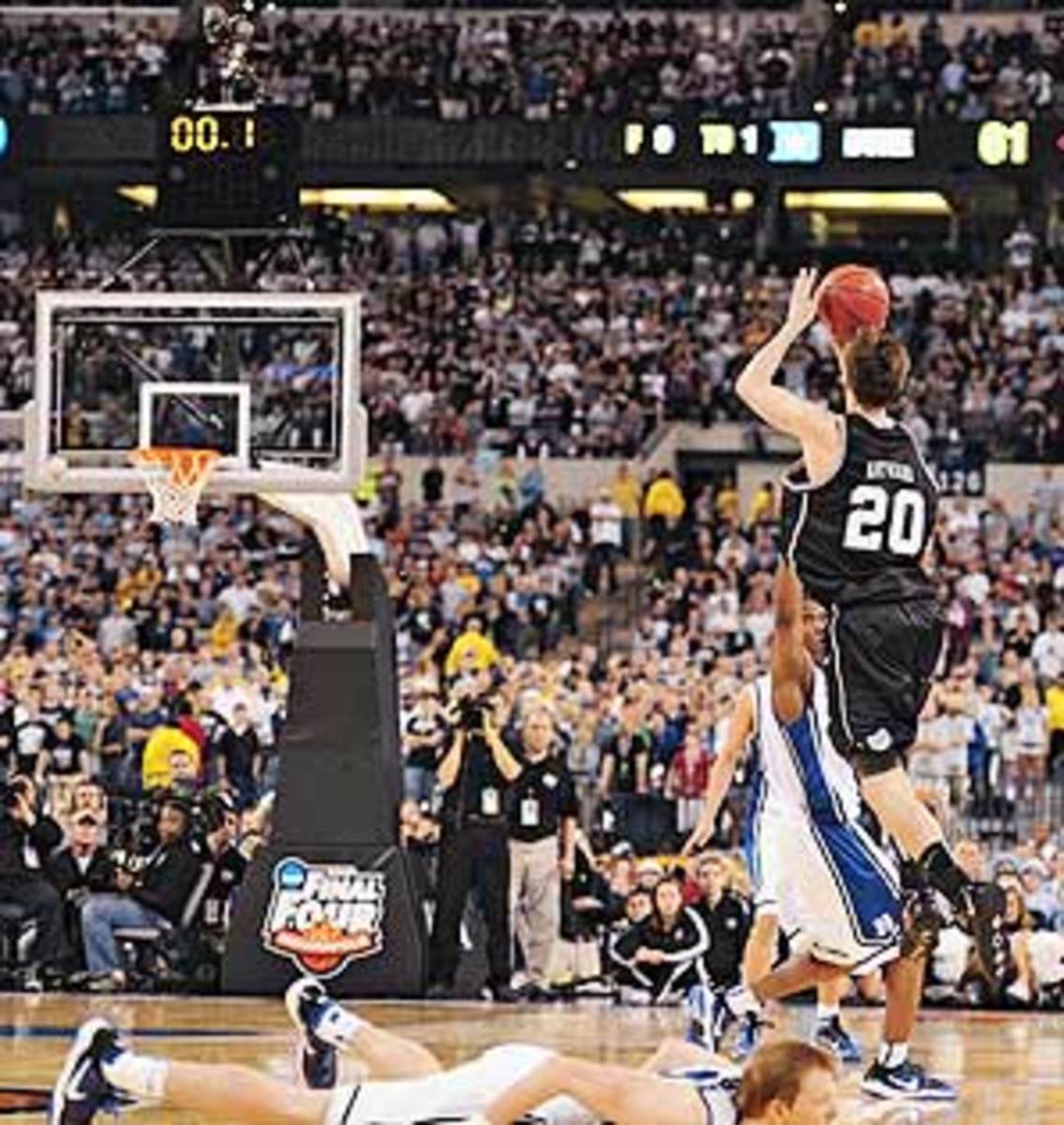
Take it from me: It's not a bad thing to be neutral on sports
This weekend, when the Final Four plays out at a neutral site, on a neutral court, before millions of neutral fans, let's stop thinking of neutral as a dirty word. In sports, it is less than manly to be neutral, which comes from the Latin neutralis, "of neither gender." This explains why fans wave giant, Freudian foam fingers. They're overcompensating. To be neutral, to many minds, is to be neutered.
But there's no shame in neutrality. The fact is, for big national spectacles like next Monday's championship game, most of us in the national audience are "neutral fans," which sounds like an oxymoron: Neutral fanatic.
I'm a neutral fanatic -- partisan about neutrality, passionate about apathy. It's all well and good to have a rooting interest in a game. That's why fantasy leagues and office pools are so popular. They give natural neutrals a stake. But it's far better still not to care at all about the outcome. Ask any gambler, sweating out the final seconds of an NBA blowout, praying some garbage-time jumper doesn't make the Knicks cover.
Neutrality has long had a bad rap. "If you are neutral in situations of injustice," said Bishop Desmond Tutu, "you have chosen the side of the oppressor." But in sports, morality and neutrality are uncoupled. With certain exceptions: It was difficult for most Americans to remain neutral during last year's Butler vs. Duke NCAA final, which smacked -- in a purely basketball context -- of oppressed vs. oppressor. Indeed, that was the entire plot of Trading Places, a morality tale pitting one butler against two Dukes. The audience, naturally, rooted for the butler.
Otherwise, I don't usually care who wins most games. Not caring is heresy among sports fans, for whom apathetic and pathetic are synonyms. But apathy was once a virtue. The original meaning of apathy was "freedom from suffering," which is what the neutral fan -- the apathetic spectator -- still enjoys: Total freedom from suffering.
You might assume that freedom from suffering also means freedom from joy, but that's a false choice, a kind of neutral-zone trap. I don't really care who wins the Butler-VCU game, but I expect to be thrilled for whoever does. Being happy for either team is literally a win-win situation, what Charlie Sheen might call "bi-winning."
Little wonder that I fell into journalism, that refuge of so-called "neutral observers." Anyone who spends time in a press box knows that it isn't always a hothouse of neutrality. I was once seated next to a student journo from The Citadel's school newspaper at Rosenblatt Stadium in Omaha during the College World Series. The budding scribe, I couldn't help but notice, had his face painted in school colors while screaming his support.
My face, on the other hand, is permanently painted in beige and gray. Neutral colors. Life is full of nuance, neutrality, gray areas, though we're not allowed to acknowledge this on the Internet, in newspaper columns, among talk radio's professional provocateurs, to whom everything is black and white. I don't feel as strongly about capital punishment as most radio hosts feel about the BCS.
(Or purport to feel. I don't believe anyone who claims to have more than three strong opinions a week -- the outer limits for a newspaper columnist -- and I certainly don't want to take a long car trip with any of them, which is what radio forces you to do.)
So I'm not red state or blue state. I'm living in a beige state. I frankly don't care who wins between the Red Sox and the Yankees, despite living between New York and Massachusetts. This won't fly among sports fans, who think admiration for both teams is contemptible. Yet contempt for both teams is perfectly admirable: How many times have you watched, say, the Cowboys play the Redskins and said, "It's a shame that one of these teams has to win"?
I am tempted to say that the person who can watch a game for the sake of the game itself -- foam fingerless, bereft of body paint -- is the truer sports fan. But arguing over who is and isn't a true fan -- "I've seen Springsteen 87 times" -- is a feeble-minded game of one-downsmanship that I don't care to engage.
That's because I am -- as a spectator, at most spectacles -- pretty impartial. I think most of us are, most of the time, which is a good thing. When we're partial we are, by definition, less than whole. The partial man is in parts. Impartiality, we can infer, renders us whole -- a whole human being.
Don't mock me for being permanently lined up in the neutral zone, a fighter forever exiled to a neutral corner. Because fighter is the right word. I will zealously protect my apathy from all who seek to destroy it, staunchly defend my neutrality to those who would do it harm. The Swiss might be neutral, but they still have an army. And that army is famous for its little knives.





